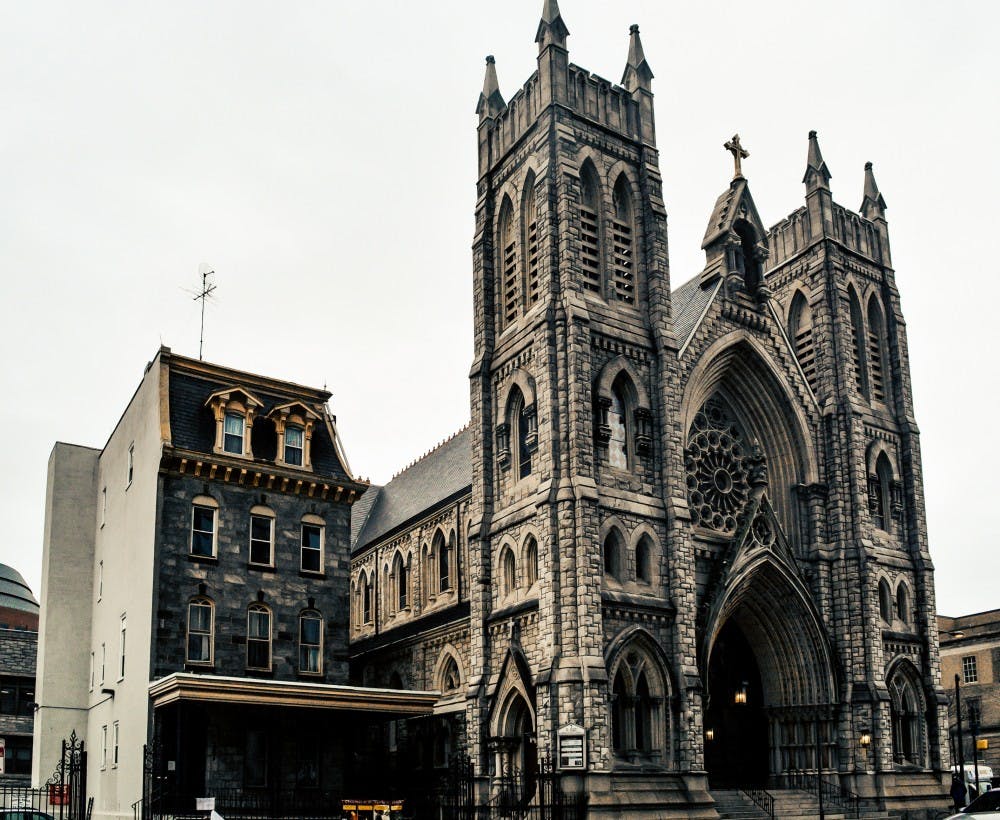I remember the first time that I doubted God’s existence. I was twelve, staring benignly down at a Bible, when it hit me that I wasn’t sure I believed any of what I was reading. I obsessed; I would push it out of my head, only to have doubts come back at the worst possible times. I felt guilty. I didn't tell anyone. And although this process started well before I came to Penn, college is where many people experience something similar for the first time.
For some, coming to Penn can be an opportunity to reconnect with a faith or explore a new one. But for many of us, coming to college can completely upend the worldview we walked in with. Maybe you are leaving a family, community, or country where practicing one religion was compulsory, and you realize you’re not sure you want to go to services or do your prayers when it’s your choice for the first time. Maybe during a late night talk, one of your friends asks difficult questions about the logic of what you believe, and you feel defensive and attacked before you ultimately realize they’re right: you don’t have answers.
Doubting your faith can be one of the most disorienting experiences you can go through. But it’s a very important experience. If the process of questioning leads you to stop believing in what you once did, that is genuinely alright. And college is an excellent opportunity to go through the process of challenging your religious beliefs.
Religious practice is an important part of many people’s lives, and I believe wholeheartedly in its benefits. At its best in any form, it can foster community, provide solace in times of stress, encourage self-betterment and altruism, and offer a framework for navigating key existential questions. But our generation is the least religious generation, driving up the increasing number of Americans who don’t identify with any religion. Some have taken this doubt as a symptom of a larger defect in our generation, but in my own experience, the problem has been with rigid religious institutions. It makes perfect sense that living in an increasingly diverse, connected world would make young people prone to question the truth and absoluteness of any perspective. I don’t think faith communities have done enough to respond to these questions.
In the church that I grew up in, the worst thing you could do was leave. The flannel-clad pastors and guitar-playing worship leaders at my Evangelical church were effusive about bringing new converts to Jesus, but spoke in hushed tones about young people “falling away” from the church. If you repented, God could forgive a multitude of sins—violence and murder, being gay and premarital sex (which were all somehow on the same moral plane)—but forsaking the one true faith was the one thing that permanently locked you outside of peace and grace.
My experience was a Christian one, but I think this can happen in any religion, and I think the result is almost always the same. This kind of rigidity might drive up attendance numbers and keep order in the short run, but it doesn’t foster a faith worth holding onto throughout your life. If you are opening yourself up to engaging with the deepest mysteries of existence, you should be coming away with difficult questions. If you fixate only on the goal of believing one faith in one correct way, you are limiting your ability to engage fully with the holy and wondrous. And if you make it through college without stopping even once to ask if your beliefs are the right ones, you are probably doing it wrong.
Genesis tells the story of the Jewish patriarch Jacob wrestling through the night with an angel. A few months ago, I heard University Chaplain (and my friend) Chaz Howard explain how this story serves to remind us that when you wrestle with something bigger than yourself, it changes you. I arrived at a place of being secure in my own beliefs through the process of doubt. But doubt isn’t only useful and good if you end up back on “the right path”: it is a key part of engaging with what it means to be alive. I understand that I will probably not always feel as confident about believing as I do now and I don’t look forward to the distress and difficulty of future challenges to my faith. But, like Jacob, I want and need to go up against something bigger than myself—and I look forward to being changed by it.

SEE MORE FROM ANA WEST:
ANA WEST is a College junior from Spring Lake, Mich. studying English. Her email address is anawest@sas.upenn.edu.









